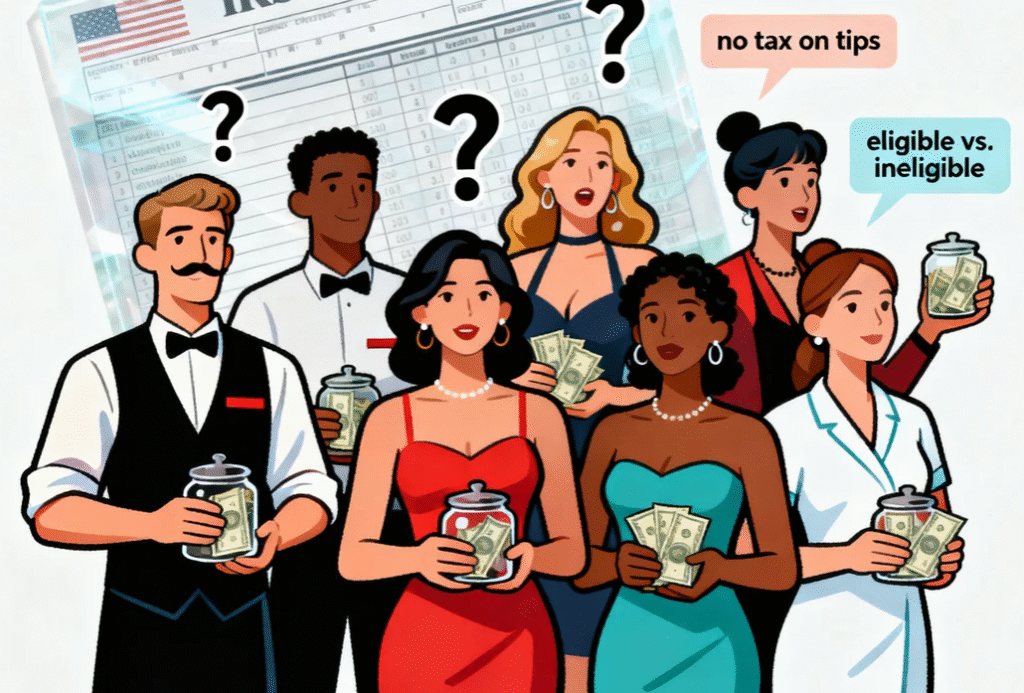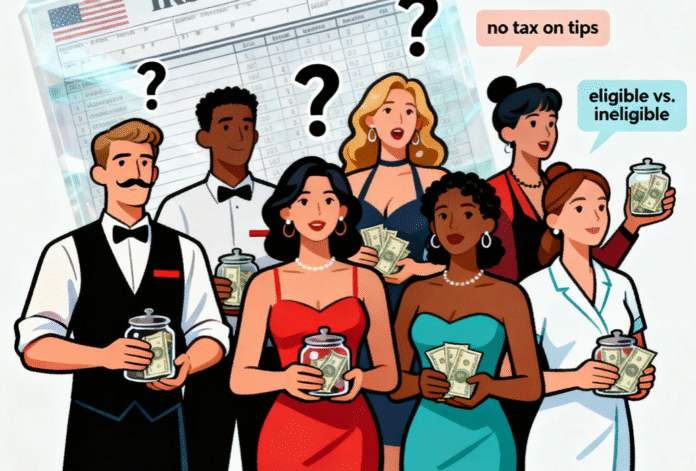The Treasury Department released a preliminary list in August of 68 occupations that might be eligible for President Donald Trump’s controversial “no tax on tips” deduction — but eligibility isn’t as straightforward as it seems.
The provision, passed under the Republican “big beautiful bill” in July, allows certain workers to deduct up to $25,000 in qualified tips per year from 2025 through 2028. The benefit phases out once a worker’s modified adjusted gross income surpasses $150,000.
However, experts caution that not every job on the Treasury’s list will necessarily qualify. “Many people will be surprised to learn that just being on the list doesn’t guarantee eligibility for the deduction,” said Ben Henry-Moreland, a certified financial planner with Kitces.com.

The law requires that qualifying occupations “customarily and regularly received tips” before December 31, 2024. But there’s another critical test: the job cannot fall under the category of a “specified service trade or business” (SSTB). This category — established in Trump’s 2017 tax legislation — excludes industries like health care, legal services, finance, and performing arts from certain tax breaks.
Thomas Gorczynski, an enrolled agent based in Tempe, Arizona, said the real challenge will be clarifying how Treasury regulations will reconcile the preliminary occupation list with the SSTB limitations. “The question is, how will [Treasury] structure the rules to navigate these complexities?” he asked.
Eligibility Depends on Employment Type
Even if your job seems to fit the tipped-occupation criteria, whether you’re a W-2 employee or a self-employed contractor can affect qualification.
“For some occupations, tips received as a contractor may not qualify, while the same work as an employee could,” Gorczynski explained.
Consider an esthetician: if they are self-employed, they may not fall under the health SSTB category because they are not technically providing medical services. But if they work in a dermatology office, their employment is considered part of a specified service trade or business, making them ineligible.
Similarly, a self-employed lounge singer might be excluded under the performing arts SSTB rules. Yet, if that same singer is employed by a casino or restaurant, they may qualify for the tip deduction.
Experts agree that more guidance is needed to clarify which jobs truly qualify. For now, the intersection of tipped occupations and SSTB exclusions makes determining eligibility far from simple — leaving many workers waiting for Treasury’s final rules to see if they can actually take advantage of the tax break.

